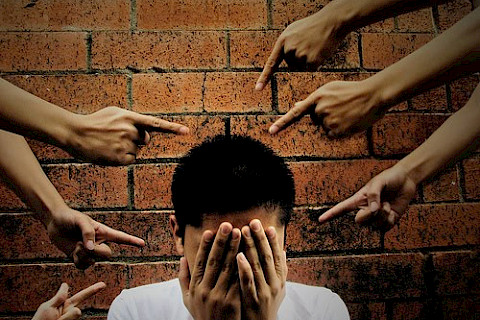
Heavy M.E.T.A.L Group
Call David: 0401 766 877
- Home
- About Us
- Services
- Bookings
- Resources
- Contact Us
Heavy M.E.T.A.L Group
Call David: 0401 766 877

Domestic violence is often represented as a female-centric issue, leaving the male victims overlooked. It is crucial to recognise men, too, can be caught in a vicious cycle of violence and shame. Often, the stigma and guilt that come with admitting to being a victim or an abuser, trap men, and perpetuating this cycle. Acknowledging abuse as a societal issue, not gender-specific, is the first step towards change. We aim to delve into the role shame plays in trapping men in violent behaviours and propose solutions to break this cycle.
Understanding Shame and Masculinity: Men are traditionally expected to exude strength and control, creating a societal norm where vulnerability is considered a threat to their masculinity. This mindset could lead to feelings of shame when they exhibit signs of vulnerability or ask for help, which can, in turn, trigger violent behaviours. Men trapped in this cycle may also experience isolation, depression, or anxiety, further intensifying their violent tendencies. It's high time we challenge these harmful societal norms and promote healthier expressions of masculinity that emphasise empathy, respect, and vulnerability.
Addressing Stigma: Men, being victims in abusive relationships, often fear societal stigma, which paints them as invulnerable. This fear of being judged negatively hinders them from seeking help. It's essential to stress that seeking help or admitting abuse isn't a sign of weakness but a testament to their strength and courage.
Breaking the Silence: Encouraging men to voice their experiences is crucial in breaking the cycle of abuse. Providing resources and organisations that cater to men facing domestic violence will assure them that they're not alone. Initiating conversations through counselling or support groups can be transformative, helping men address their trauma and learn healthier emotional management techniques.
Accountability and Responsibility: Abusers must take responsibility for their actions and seek help. A critical step towards preventing further harm is discouraging the societal norm from excusing or minimising male violence and pushing for accountability.
Cultivating Respect: A societal shift is required to break the cycle of shame and violence. It's vital to create a culture that prioritises respect, empathy, and effective communication. Challenging the gender norms associating masculinity with violence and promoting positive masculinity models can be achieved through education, support groups, and media representation.
Guilt and Shame - Pathway to Balance: By acknowledging guilt and shame, which are typically avoided, men can enhance their emotional intelligence, foster personal growth, and build healthier relationships. It also helps reduce self-destructive behaviours, cultivate self-compassion, and build emotional resilience.
Domestic violence is not an issue confined to a single gender but rather a human problem that requires collective responsibility and action. We all have a role to play in ensuring this vicious cycle is dismantled, and that begins with acknowledging that violence and shame have no place in our society. Men need to be aware of their potential involvement in this cycle and consciously strive to break the silence. Those who perpetrate abuse must be held accountable for their actions. Additionally, as a society, we must nurture an environment characterised by respect, empathy, and effective communication. It's only through our combined efforts that we can hope to create a world free from the scourge of domestic violence. Let's stand together in the mission to safeguard the rights and dignity of every individual, irrespective of gender and age.